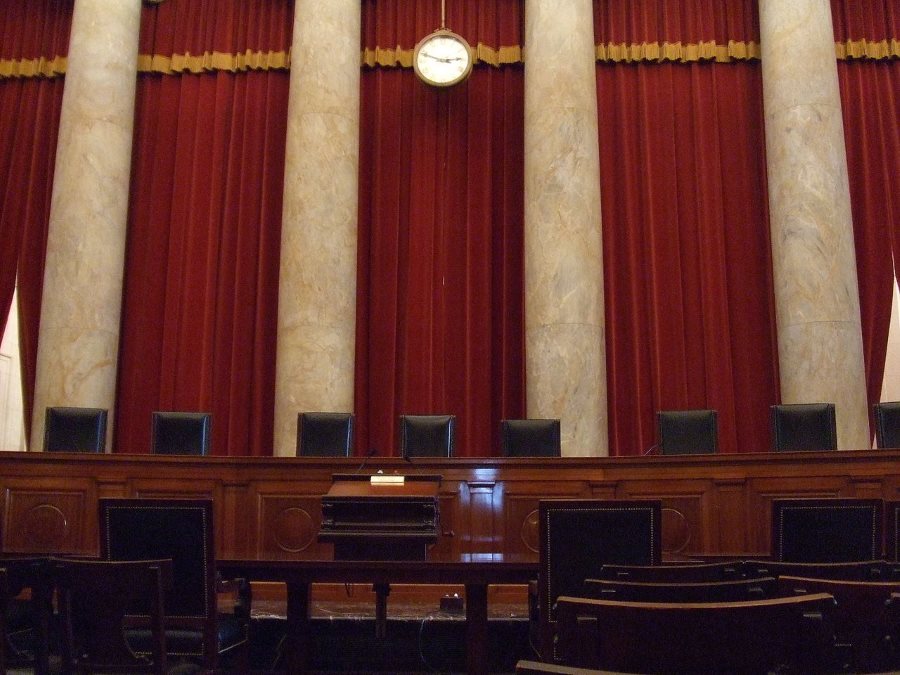Mining must “court” US judiciary as NGOs file more lawsuits

The Trump Administration will find it difficult to use the stroke of a pen to overturn policies and regulations pertaining to climate change, endangered species, waters of the U.S. and other natural resource policy issues, legal and government affairs experts told the American Exploration & Mining Association conference on Friday.
And–if the Trump Administration shuts the White House doors to environmental and human rights NGOs–a vast NGO legal shift to the courts is anticipated, making the confirmation of nominees to the U.S. Supreme Court extremely critical to mining’s long-term future, AEMA Government Affairs Director Matt Ellsworth told an audience of attorneys, government affairs experts, environmental professionals, geologists, and miners.
Even before Donald Trump assumes the presidency, the fight over sage grouse habitat being waged between federal agencies and natural resource industries finds mining attorneys already trying to plead the industry’s plight before a federal judiciary packed with justices and judges who may not understand or, do not like mining, Ellsworth observed. Therefore, Supreme Court nominees, along with a number of federal appeals and lower court justices and judges, need to be educated about the benefits of today’s modern mining industry to society.
The fight over confirmation of future U.S. Supreme Court justices, including the upcoming Trump Administration nominee to fill the late Justice Anton Scalia’s seat, will have a long-standing impact on natural resources in this country, Ellsworth asserted. “We will not get another Anton Scalia” or even a Ruth Ginsburg ideologically speaking, he advised, meaning that Trump Administration Supreme Court nominees will probably have to be “right of center” to win approval in the U.S. Senate.
Cabinet Vacancies may go Unfilled until Spring
Controversial presidential cabinet nominees, such as Oklahoma Attorney General Scott Pruitt for EPA Director, could slow the Senate confirmation process to a crawl, resulting in top agency positions going unfilled until Spring, Ellsworth warned.
AEMA Executive Director Laura Skaer expressed strong support for Washington State U.S. Representative Cathy McMorris Rodgers as Trump’s nominee for Secretary of the Interior. “She really does understand public lands,” Skaer told the AEMA attendees, predicting mining will have “incredible access” to the new Interior Secretary designate. AEMA is headquartered in Spokane, Washington, which lies within McMorris Rodgers’ congressional district.
“We’re going to have a really good chance to get something done in the Department of Interior,” Skaer declared.
Meanwhile, former House Natural Resources Committee staffer Kathy Benedetto, a geologist and co-founder of the Women’s Mining Coalition, is part of the Trump Transition Team appointed to represent President-Elect Donald Trump at Interior.
During the AEMA panel session, U.S. Rep. Mark Amodei R-Nevada, a former president of the Nevada Mining Association, said it is imperative representatives for rural U.S. Congressional Districts get natural resources legislation fixed and out of the U.S. House within the first 100 days of the incoming Congress.
Amodei observed that most members of House Leadership represent urban centers with constituents who are not as concerned about public lands issues as representatives from rural districts. Therefore, he urged mining companies to quickly lobby the House leadership and tell them “we have to move now” on mining-related and public lands legislation. For instance, the House is two years behind in sage grouse habitat-related legislation, which could devastate the western hardrock mining sector.
Therefore, Amodei and other representatives of rural congressional districts are renewing their push to convince the House leadership to create a Resource Advisory Task Force. The Nevada representative said Congress’s best shot to get federal agencies to pay attention to natural resource and similar issues is during the appropriation hearings process, which he referred to as “the stick that controls agencies.”
Even if natural resource-related bills make it out of the House, chances are strong that they could die in the U.S. Senate because senators have to represent their states as a whole, Amodei observed.
During a separate panel session, attorney Robert A. Bassett, mining team leader for Holland & Hart in Colorado, warned the audience that the SEC’s proposed elimination of its Industry Guide 7 pertaining to the reporting of reserves and, substitution of new rules similar to NI 43-101 and CRIRSCO standards may stall in the new Trump Administration. The changes would allow mining and exploration companies to include resources in press releases and documents aimed for U.S. markets.
At this point, Bassett admitted, “We don’t know what the (Trump) Administration is going to do.” However, while panelists at the AEMA financial session called the SEC proposed regulations “a mishmash” that “isn’t going to work” the fact that the SEC has sought help from mining professional associations and other groups to improve the regulations “is good news.”
{{ commodity.name }}
{{ post.title }}
{{ post.date }}




Comments